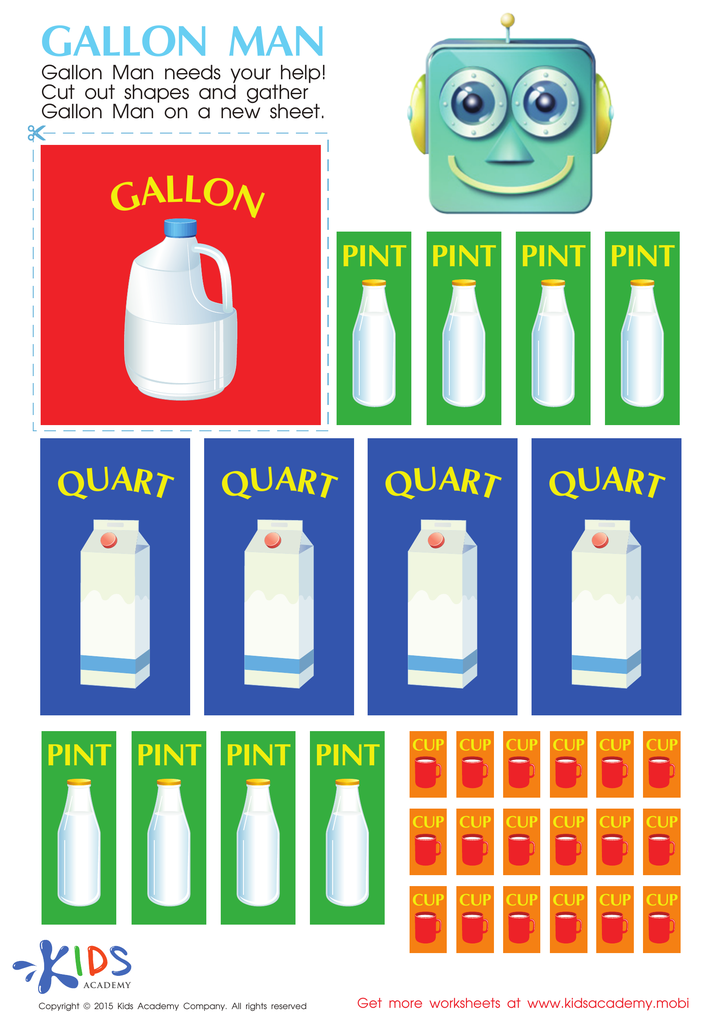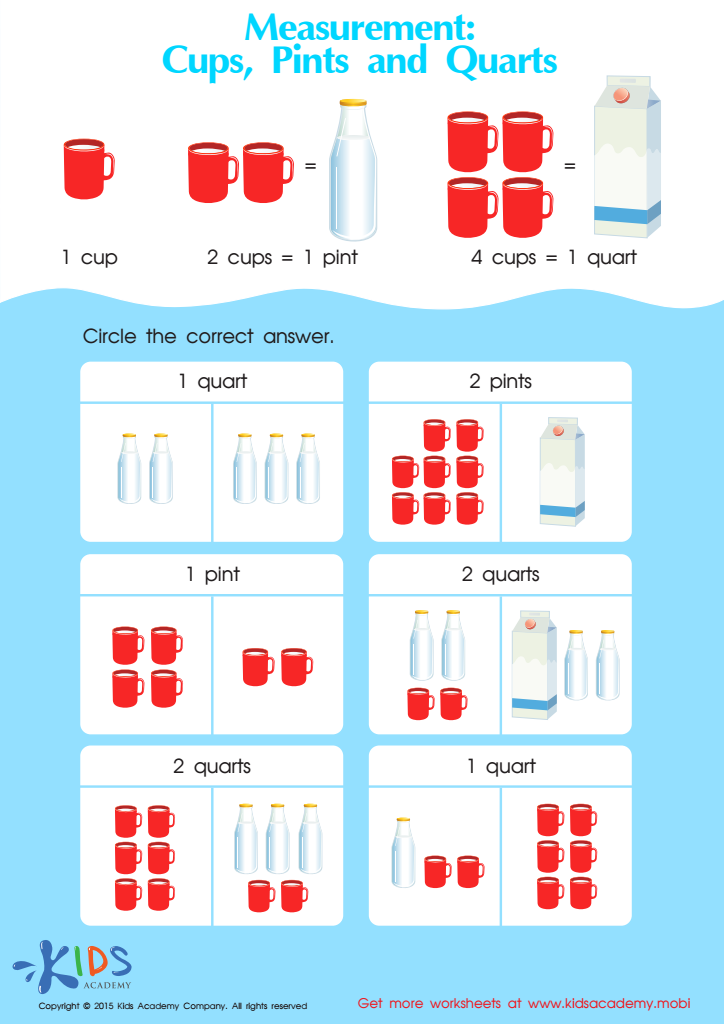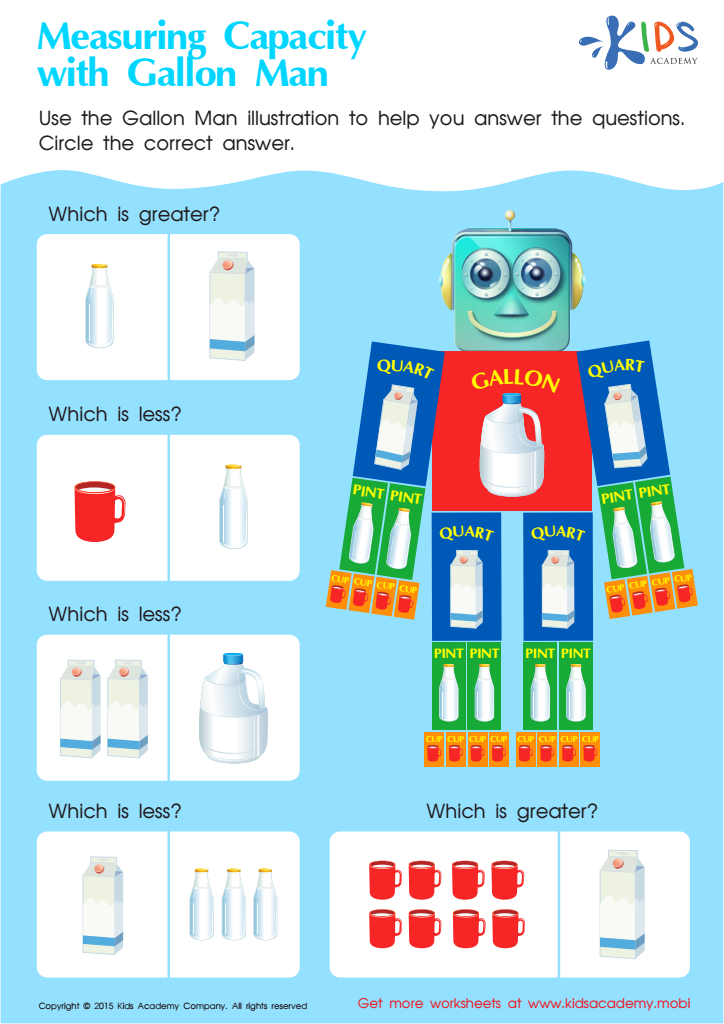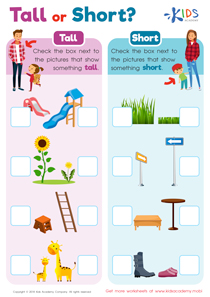Understanding measurement units Preschool Measurement Worksheets
3 filtered results
-
From - To
Develop early math skills with our "Understanding Measurement Units" Preschool Measurement Worksheets. Perfectly tailored for young learners, these worksheets introduce children to fundamental measurement concepts in a fun, engaging manner. Through colorful activities and interactive tasks, kids will learn to compare lengths, heights, and weights, understand size differences, and use basic measurement units. Ignite your preschooler's curiosity and strengthen their foundational math abilities with our expertly crafted resources. Discover a delightful learning experience and watch as your child’s confidence in handling measurement units grows. Start their educational journey today with Kids Academy.


Cups, Pints and Quarts With Gallon Man Worksheet


Cups, Pints and Quarts Worksheet


Measurement: Measuring Capacity with Gallon Man Worksheet
Understanding measurement units in preschool is crucial for young children's cognitive and academic development, forming a foundational skill set for future learning. When children grasp basic measurement concepts, they enhance their abilities in critical thinking, reasoning, and problem-solving. These are key skills applicable across various subjects, especially in mathematics and science, where measurement plays a vital role.
Early exposure to measurement units helps children contextualize the world around them. For instance, knowing the difference between a teaspoon and a tablespoon can make a baking activity not only more fun but also educational. Understanding concepts of weight, length, volume, and time helps kids feel more confident and competent in everyday situations.
For parents, engaging with their children in measurement activities strengthens the parent-child bond and promotes shared learning experiences. For teachers, integrating measurement units into lessons ensures that students build the necessary skills to progress in more complicated subjects. Measurement activities often involve hands-on learning, which can make abstract concepts more concrete and accessible for young minds.
In sum, focusing on measurements in early childhood lays the groundwork for academic success and practical life skills. By bringing attention to these fundamental concepts, parents and teachers can better support the well-rounded development of preschoolers.

 Assign to My Students
Assign to My Students













